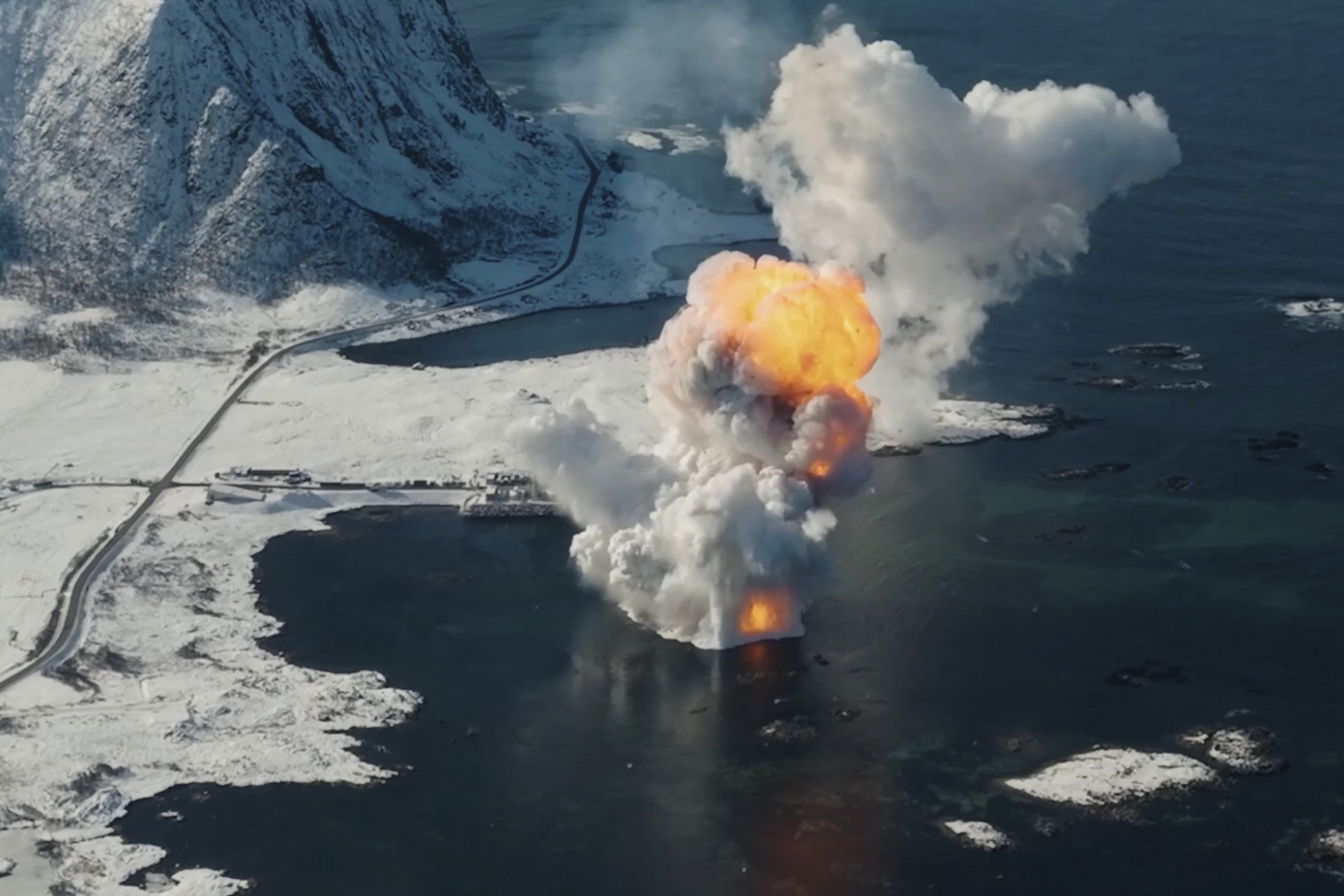
OSLO - A German-built rocket launched from Norway's Andoya Spaceport crashed and exploded shortly after liftoff on Sunday, marking the first commercial orbital launch from mainland Europe.
The Spectrum rocket, developed by German startup Isar Aerospace, lifted off at 12:30 pm local time (1030 GMT). Around 30 seconds into the flight, it began to tilt before falling back to the ground and exploding. A loud bang was heard during the live broadcast of the event, and video footage showed the 28-meter-tall, 50-ton rocket crashing near the launch pad at Nordmela on the island of Andoya.
ALSO READ: Star-filled Euclid images spur mission to probe 'dark universe'
No injuries were reported. Andoya Space, which operates the launch facility, said a crisis team had been activated and it was working closely with emergency services and Isar Aerospace to assess the situation. "Safety during operational activities is Andoya Spaceport's highest priority," the company said in a press release.
The launch had faced several previous delays due to adverse weather conditions. Both Andoya Space and Isar Aerospace said they will provide updates as more information becomes available.
Following the crash, Isar Aerospace issued a statement, saying that the launch had met its set goals and "the launch vehicle fell into the sea in a controlled manner."
"Our first test flight met all our expectations, achieving a great success," said Daniel Metzler, CEO and Co-founder of Isar Aerospace. He emphasized that the mission provided important data and experience for future flights.
"Now it's time to analyze all data, learn, iterate and be back on the launch pad as soon as possible," he added.
READ MORE: Germany, Israel agree to cooperate on moon landing mission
Metzler also affirmed his company's ambition "to serve customers from around the world to bring their satellites into space and to help Europe solve a major blind spot in its security architecture: access to space."
Before liftoff, Andoya Spaceport Operations Director Jon Harr described the event as "an important milestone" not only for Norway but for European space activities as a whole. However, Isar Aerospace had cautioned that no company has ever succeeded in achieving spaceflight in its first test launch.
Andoya Spaceport officials stressed that such incidents are part of the development process for new space technologies. "Making this work day after day, with so many actors involved, is demanding," Harr said.
"Today's maiden flight has not been launched nominally. But that doesn't mean it wasn't a success," said Walther Pelzer, executive board member of the German Aerospace Center (DLR) and director general of the German Space Agency at DLR.
He stressed the importance of today's test, noting that it allows the team to detect errors and adapt quickly - "exactly what we expect from agile companies."
ALSO READ: Trump, Musk watch SpaceX launch Starship, booster misses landing
The project, known as "Going Full Spectrum," had been in preparation for months. Sunday marked the final day of an initial 10-day launch window. Previous attempts had to be aborted due to high winds.
Headquartered near Munich, Germany, Isar Aerospace was founded in 2018 and now has over 400 employees from more than 50 nations. Sponsored by private funding from international investors, it builds and operates launch vehicles for transporting small and medium-sized satellites as well as satellite constellations into Earth's orbit.


